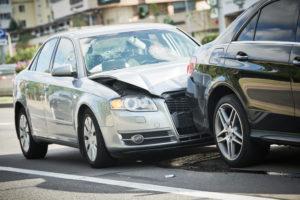
Post-traumatic stress disorder (PTSD) is a serious condition that can affect a person’s relationships, career, and quality of life. Although PTSD is commonly associated with military action, it can affect anyone who experiences a traumatic event.
A study by the American Psychological Association shows that motor vehicle accidents are the leading cause of PTSD in the United States. Some people have trouble sleeping and concentrating; others constantly relive the event through nightmares and flashbacks.
Four Common Symptoms of PTSD After Car Accidents
It’s normal to feel anxious or depressed after a car accident. This is particularly true if you lost a loved one in the crash or suffered injuries. However, just because you experience depression does not necessarily mean that you suffer from PTSD.
Post-traumatic stress disorder has profound and devastating effects. Luckily the depression and anxiety caused by PTSD can be treated. Although every case of PTSD is unique, these four symptoms are particularly common:
Intrusive Memories
After a serious collision, victims may experience recurrent flashbacks of the accident or relive the incident through nightmares. In these cases, cognitive behavioral therapy may help patients identify and change irrationally negative thought patterns. Exposure therapy may also be effective; this involves confronting the cause of your PTSD in a controlled setting.
Avoiding Certain People and Places
If you find yourself actively trying to avoid people or places that remind you of the wreck, then you may be suffering from PTSD. Emotional avoidance may seem like an easy solution but it’s not a healthy coping mechanism.
Behavior Changes
PTSD can cause victims to blame themselves or others for the accident. They may feel emotional numbness, depression, or hopelessness. In these cases, doctors may recommend a treatment plan that combines psychotherapy with prescription antidepressants or anti-anxiety medications.
Problems Sleeping and Concentrating
A traumatic accident can cause sleep problems, and severe anxiety may inhibit the victim’s ability to concentrate. Antidepressants and anti-anxiety medications may improve these symptoms.
For a free legal consultation, call 800-537-8185
How Many People Experience Traumatic Car Accidents?
There’s a good reason why car wrecks are the leading cause of PTSD in the United States: Accidents are alarmingly common. The U.S. Department of Veterans Affairs estimates that 1% of the U.S. population will suffer injuries in motor vehicle accidents.
That might not sound like much – but it adds up to more than 3 million injuries every year. In addition to physical wounds, many victims endure the psychological effects of PTSD. The number of car accident survivors who experience PTSD is likely underreported as a stigma still surrounds mental health issues.
How Long does PTSD Last After a Car Accident?
Every case of post-traumatic stress disorder is different. One person may be affected for days while another person suffers for years. If you experience PTSD, there’s really no way to know how long it will last.
Tragic accidents involving death or long-term disability can take much longer to recover from than anxiety-inducing fender benders. Additionally, these four common PTSD symptoms may not all remain present. For example, you may return to your normal behaviors but continue to have nightmares.
Click to contact our personal injury lawyers today
Risk Factors for Developing PTSD After a Car Accident
Everyone who drives or rides in a vehicle has the potential to experience post-traumatic stress disorder after a collision. However, some factors increase your risk, such as:
- Family history of psychopathology
- Struggling to cope with prior trauma
- Lack of support system
- High levels of emotion after the collision
PTSD can affect people of all ages. Children should be encouraged to ask questions or talk about their feelings after a car crash.
How do You Get Over PTSD After a Car Accident?
If left untreated, post-traumatic stress disorder could diminish your quality of life for years. Thankfully, you have multiple ways to treat PTSD, including:
- Educating yourself about PTSD
- Learning to manage anxiety
- Practicing self-care
- Seeking professional help
For some, simply understanding post-traumatic stress can greatly reduce symptoms. Lose the “get over it” attitude and allow yourself to “not be okay” for a while. Wounds can heal slowly so give yourself time to heal and process your emotions.
Just as you would visit a doctor to treat physical ailments, you can benefit from mental health care. Therapy and medication can treat depression and anxiety. Depending on your situation, your ultimate goal may be to reduce stress, cope with anxiety, or rebuild your self-esteem after a car accident.
Questions?Call 800-537-8185
to find a Morris Bart office near you.





